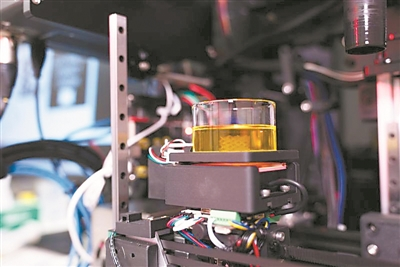WEEKLY REVIEW (Nov. 11-17)

Lijian-1 Y5 Commercial Carrier Rocket Launched
China launched the Lijian-1 Y5 commercial carrier rocket with 15 satellites onboard on November 11. The satellites, including the Jilin-1 Gaofen series, Yunyao-1 series, Xiguang-1 series, and a remote-sensing satellite for Oman, were put into their planned orbits.
Carbon-based Artificial Muscles Created
Scientists from the Institute of Chemistry under the Chinese Academy of Sciences and Ocean University of China have developed a novel type of artificial muscle that is based on carbon, a fundamental component of all known living organisms on our planet.
Novel Strategy to Repair Human Brain
Chinese scientists from Tianjin University have proposed a novel strategy of integrating two approaches to repair the human brain, namely connecting the brain to a machine and simulating brain cultivation. Their strategy involves implanting brain-like nervous tissue in a cerebral injury region and then electrically connecting it to an external control.
3D Bioprinter Mimics Human Tissues
Biomedical engineers from the University of Melbourne have invented a 3D bioprinter capable of fabricating structures that closely mimic the diverse tissues in the human body, from soft brain tissue to harder materials like bone and cartilage. This cutting-edge technology offers cancer researchers an advanced tool for replicating specific organs and tissues, significantly improving the potential to predict and develop new pharmaceutical therapies.
Pluripotent Stem Cells Used to Repair Cornea
Scientists at Osaka University in Japan have for the first time used corneal tissue transformed from human induced pluripotent stem cells to repair the corneas of four patients with limbal stem-cell deficiency. The research team plans to conduct a larger clinical trial to explore the efficacy of the treatment.







